Indigenous Governance Database
NNI and Harvard Project Research
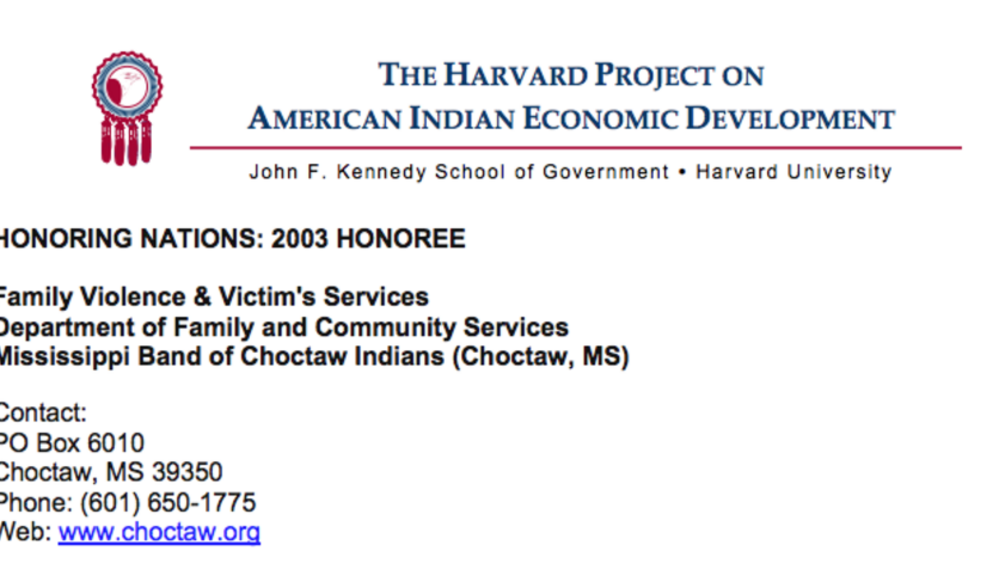
Mississippi Choctaw Family Violence & Victim's Services
Addressing the often-stigmatized issues of domestic violence, sexual assault, stalking, and elder abuse, the Family Violence and Victim’s Services (FVVS) provides comprehensive resources for victims such as access to legal services, counseling, and therapy. In addition, FVVS drafted a strict tribal…

Gila River Telecommunications, Inc.
Recognizing the need for affordable and reliable telecommunications services, the Tribe founded Gila River Telecommunications, Inc. (GRTI) in 1988. A pioneer in telecommunications in Indian Country, GRTI offers affordable landline phone service, dial-up and DSL Internet service, and satellite…
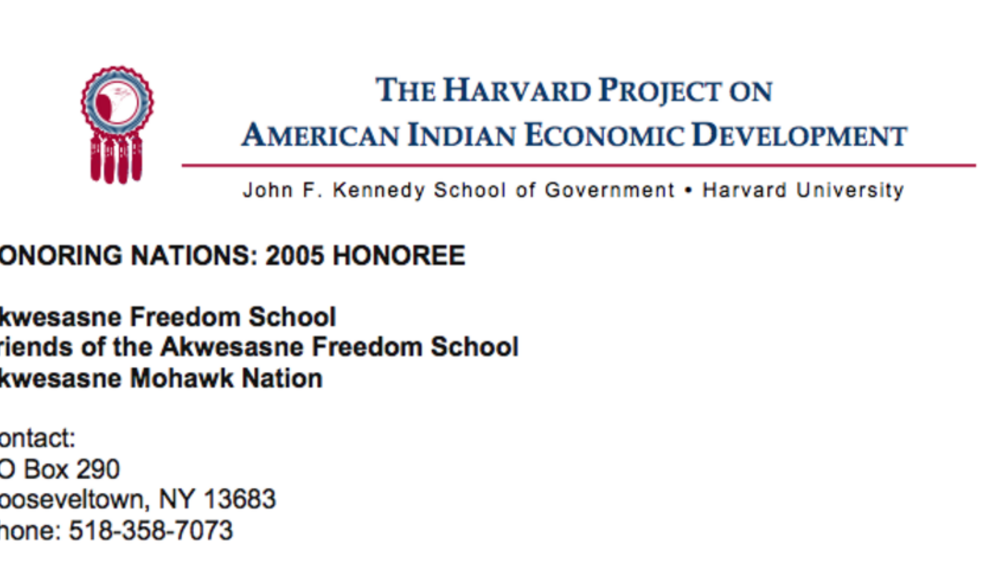
Akwesasne Freedom School
In 1979, the Akwesasne Freedom School took form out of the Mohawk struggle for self-determination and self-government. It is characterized by a deep commitment to the maintenance of Mohawk identity. Students in this pre-kindergarten through 8th-grade language immersion school begin and end each…
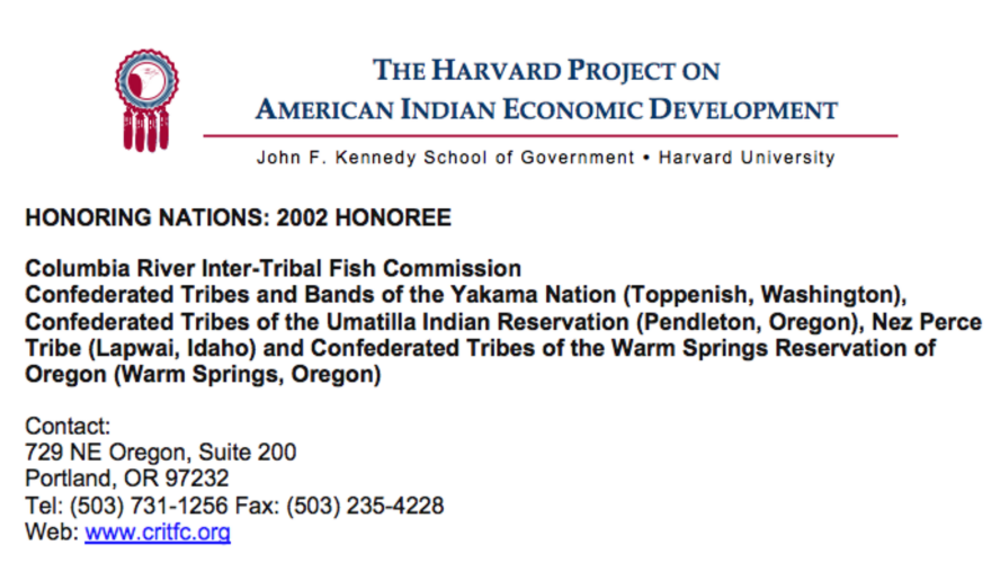
Columbia River Inter-Tribal Fish Commission
Charged with the overall management of its member tribes’ fisheries resources and advocating for the protection of treaty rights, the Columbia River Inter-Tribal Fish Commission’s (CRITFC) programs include fisheries enforcement, policy development and litigation support, fish marketing, and…
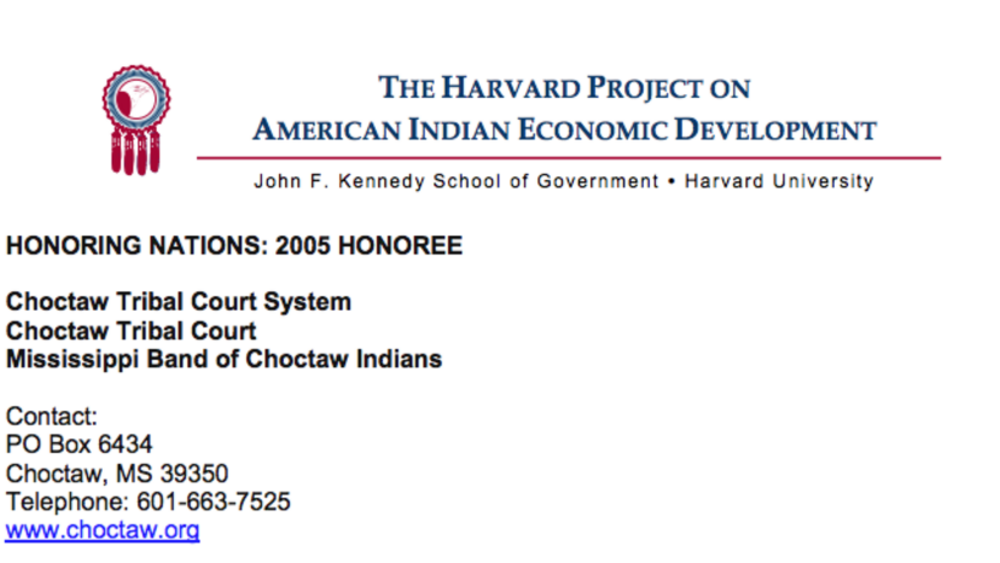
Choctaw Tribal Court System
Self-determination is the guiding principle behind all of the government initiatives undertaken by the Mississippi Band of Choctaw Indians. This nation has created a vibrant economy while investing resources into the preservation of Choctaw language and culture. At the heart of its success is its…
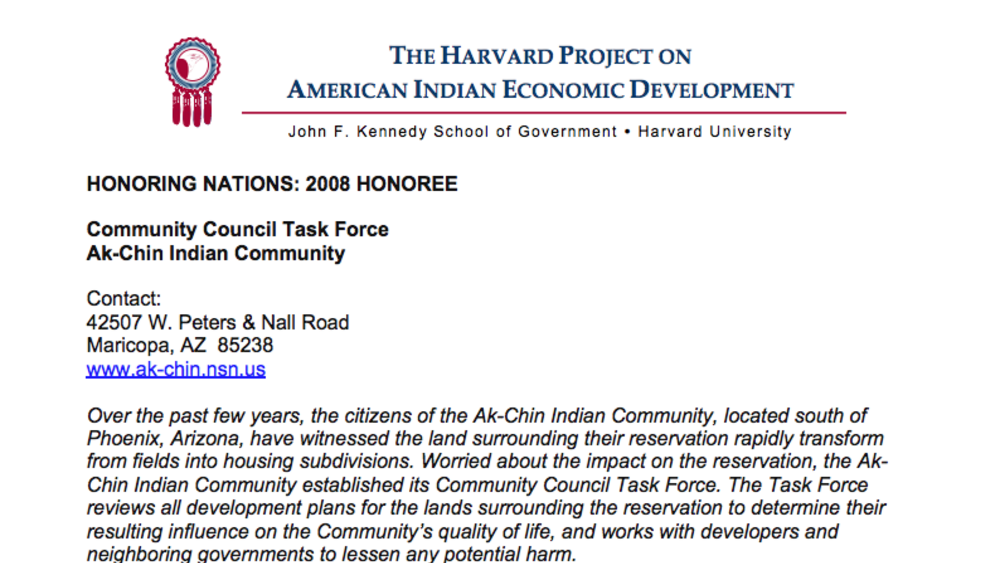
Ak-Chin Community Council Task Force
Over the past few years, the citizens of the Ak-Chin Indian Community, located south of Phoenix, Arizona, have witnessed the land surrounding their reservation rapidly transform from fields into housing subdivisions. Worried about the impact on the reservation, the Ak-Chin Indian Community…
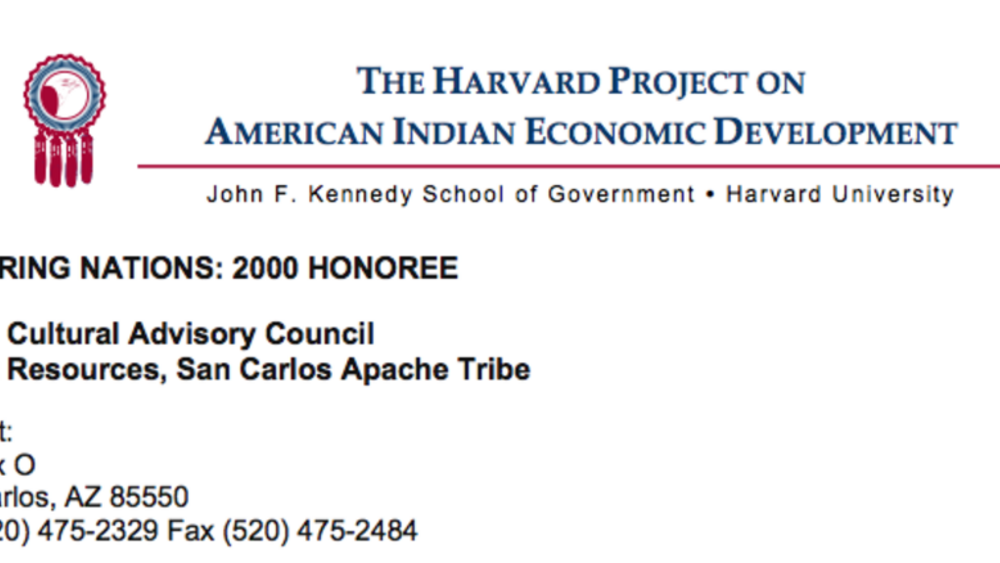
San Carlos Apache Elders Cultural Advisory Council
The Elders Cultural Advisory Council was formed by a resolution of the San Carlos Tribal Council in 1993 to advise on culturally related matters, to consult with off-reservation entities, and to administer and oversee cultural preservation activities. As a source of traditional wisdom, the Elders…
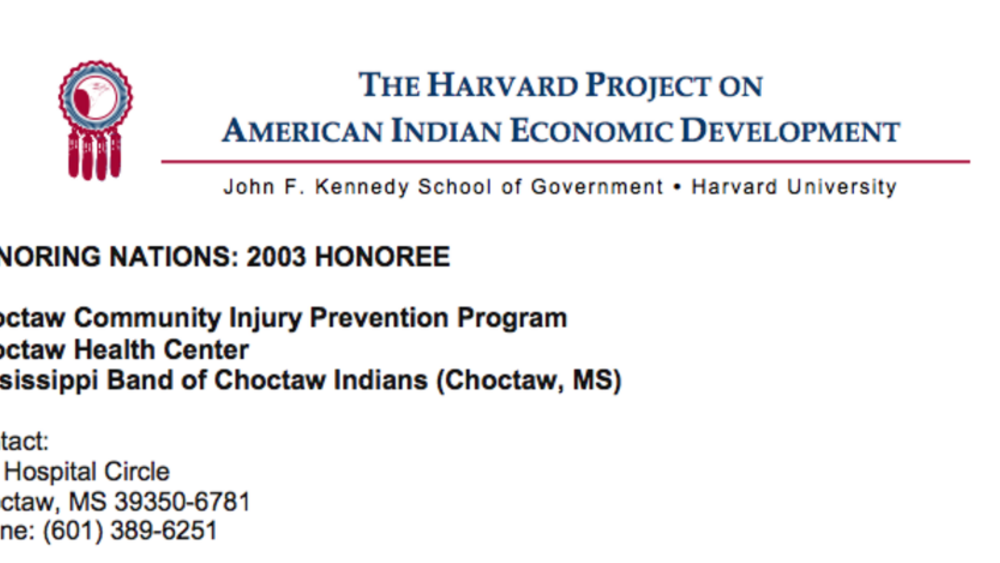
Choctaw Community Injury Prevention Program
Responding to alarming rates of preventable accidents on its reservation, the Mississippi Band of Choctaw created a comprehensive community injury prevention program in 2001. Through seat belt and child safety seat campaigns, strict enforcement of motor vehicle laws, and community-wide education…
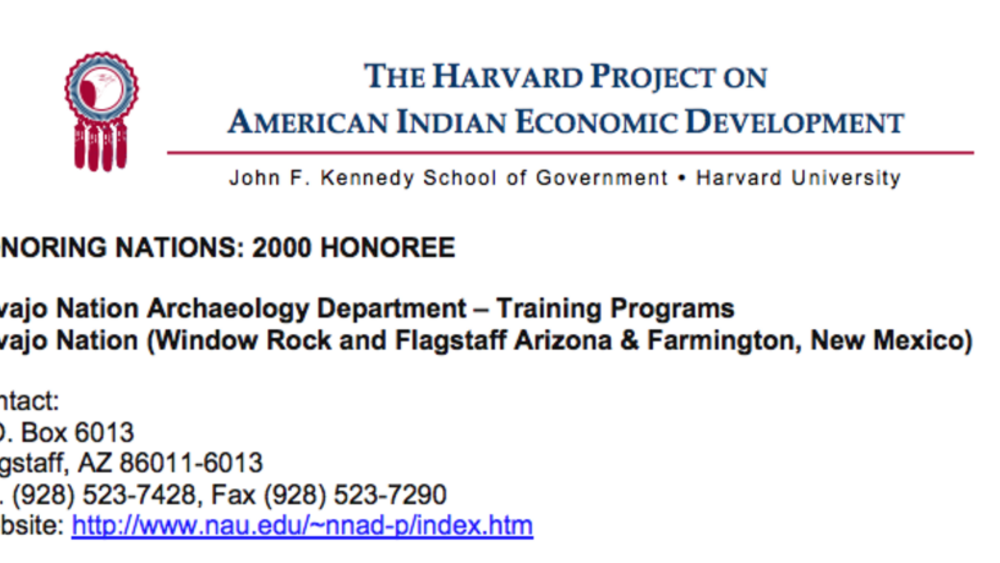
Navajo Nation Archaeology Department Training Programs
The Navajo Nation Archaeology Department was created in 1977 to facilitate historic preservation on Navajo Nation lands as mandated by both US and tribal government legislation. In 1988 and again in 1993, the Department expanded to include training programs, undertaken in partnership with Northern…
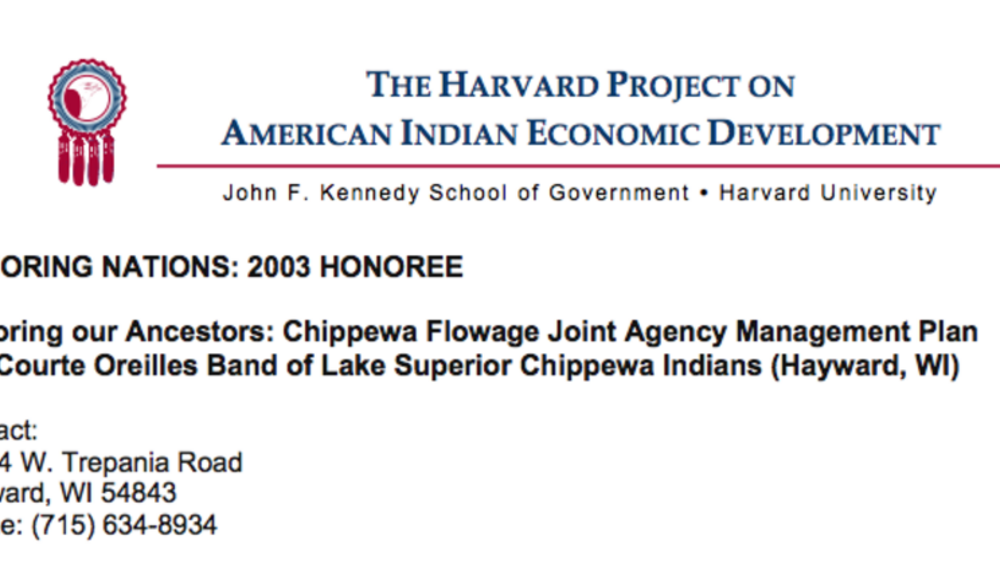
The Chippewa Flowage Joint Agency Management Plan
The Joint Agency Management Plan brings together three governments — the Lac Courte Oreilles Band, the State of Wisconsin, and the US Department of Agriculture Forest Service — to co-manage the Chippewa Flowage, a 15,300-acre reservoir created in 1923 that inundated a tribal village. Taking into…
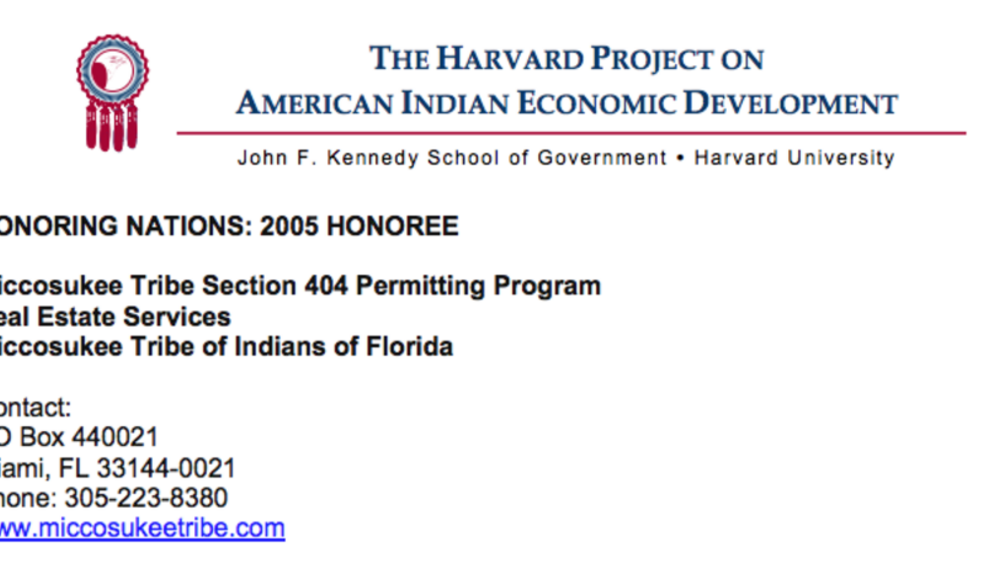
Miccosukee Tribe Section 404 Permitting Program
The reservation lands of the Miccosukee Tribe lie largely within the Everglades National Park. Development on these lands is subject to elaborate regulations by a host of federal agencies that hindered development and other uses of their lands by the Miccosukee people, including the building of…
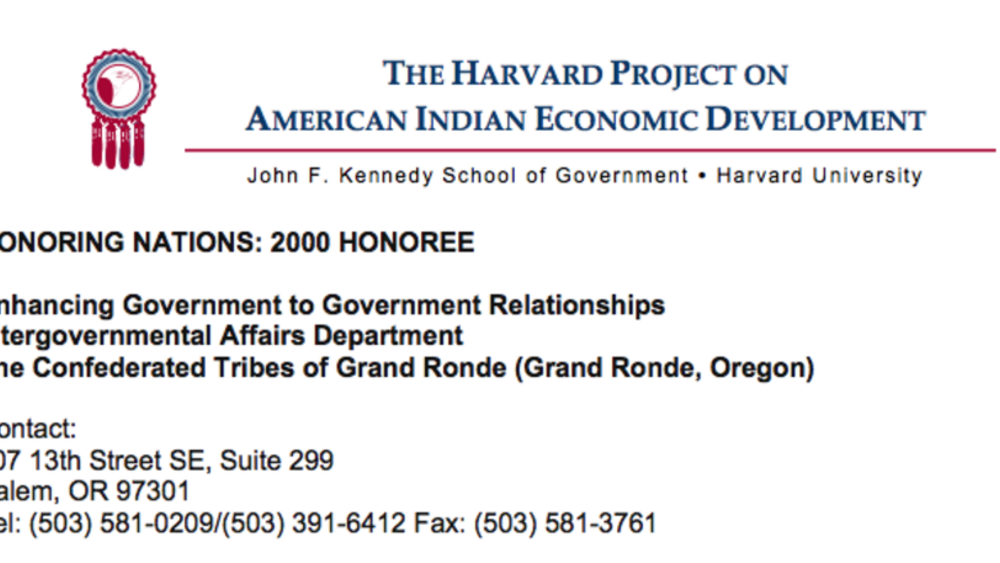
Enhancing Government-to-Government Relationships (Grand Ronde)
The Intergovernmental Affairs Department has achieved positive intergovernmental relationships with federal, state, and local governments by pursuing a five-pronged strategy of communication, education, cooperation, contributions, and presence. Since the Department’s creation, the Tribe has raised…
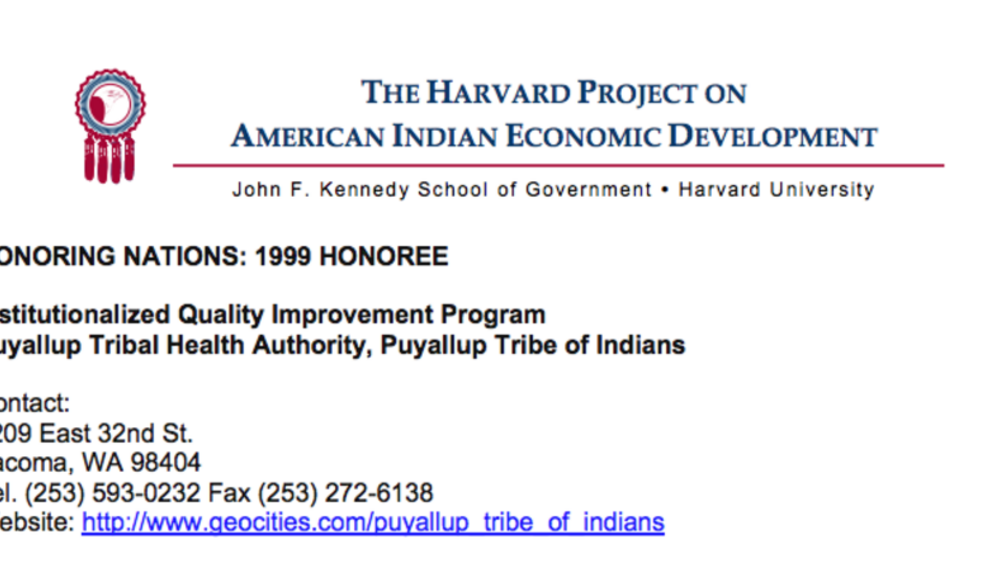
Puyallup's Institutionalized Quality Improvement Program
Following a major tribally-initiated restructuring in the early 1980s that created a quality improvement committee and a flatter organizational structure, the PTHA has increased patient access for urgent care visits, reduced "no show" rates, created clinical objectives, increased dental treatments…
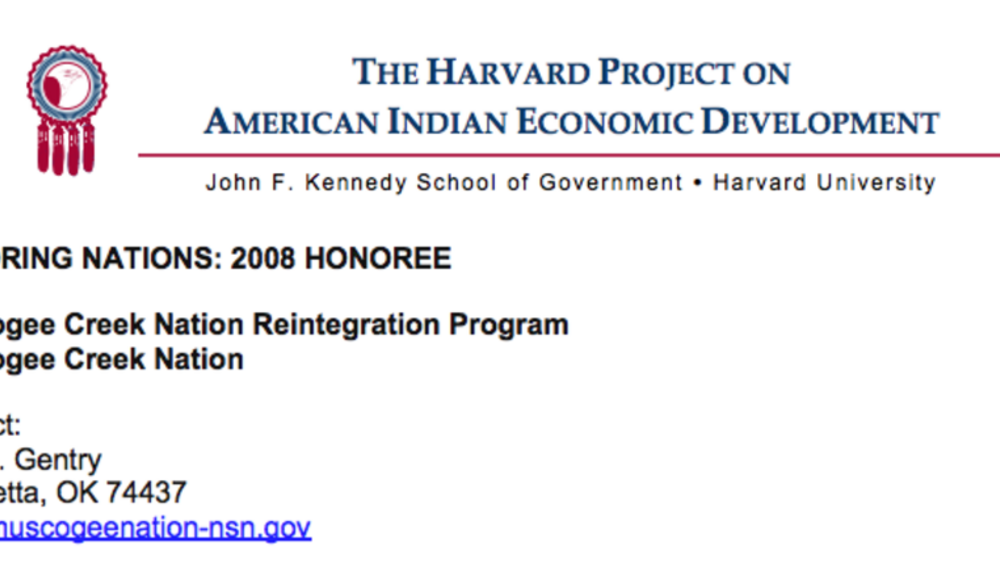
Muscogee Creek Nation Reintegration Program
Although the state of Oklahoma has one of the largest prison systems in the US, it provides released prisoners with little post-incarceration support. Many struggle to find their way on the "outside" and are eventually re-incarcerated. In the early 2000s, the Muscogee Creek Nation set out to tackle…
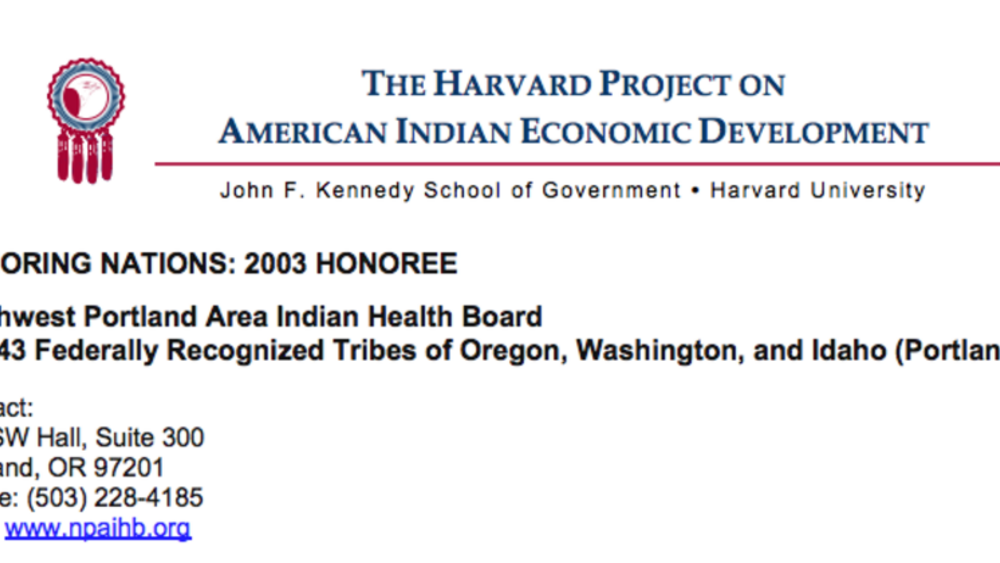
Northwest Portland Area Indian Health Board
Serving tribes in Oregon, Washington, and Idaho, the Northwest Portland Area Indian Health Board (NPAIHB) was created in 1972 to increase tribes’ ability to exercise control over the design and development of tribal health care delivery systems. Governed by tribal government delegates, NPAIHB…
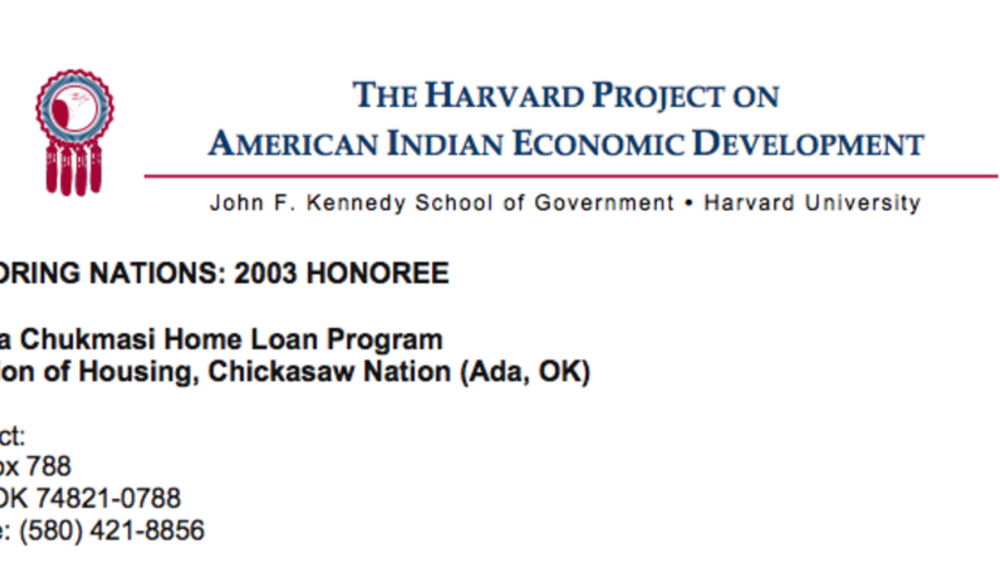
Chickasaw Nation's Chuka Chukmasi Home Loan Program
Created in 1998 to increase home ownership among Chickasaw citizens and other Native Americans in Oklahoma, the Chuka Chukmasi ("beautiful home") Home Loan Program is a secondary market home loan program that has helped more than 200 families realize the dream of home ownership. Collaborating with…
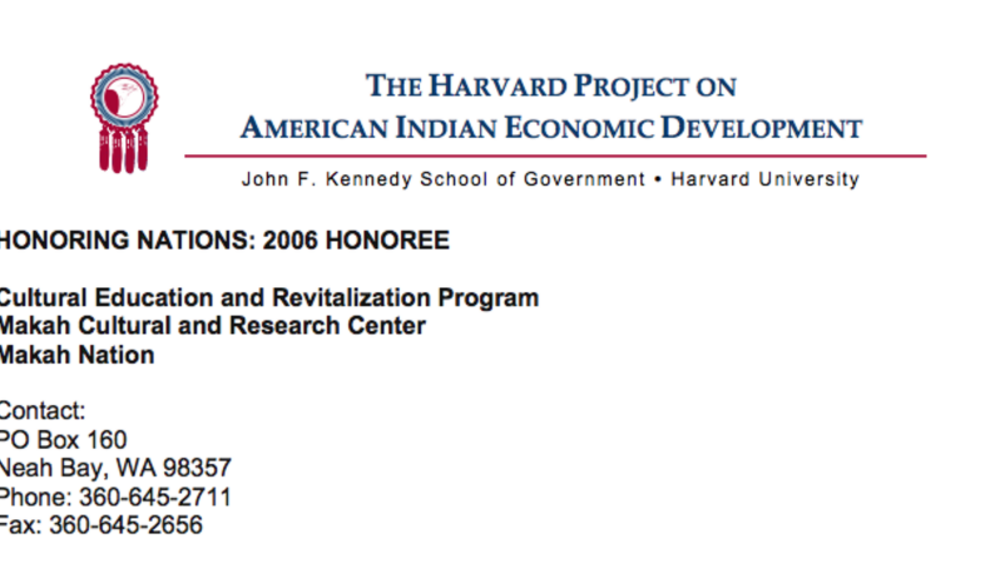
Makah Cultural Education and Revitalization Program
The Cultural Education and Revitalization Program serves as the hub of the community and stewards of a world class museum collection. Keen efforts and awareness demonstrated by staff and community members make this Center unique. Programs are truly guided by the needs of the Nation and its citizens…
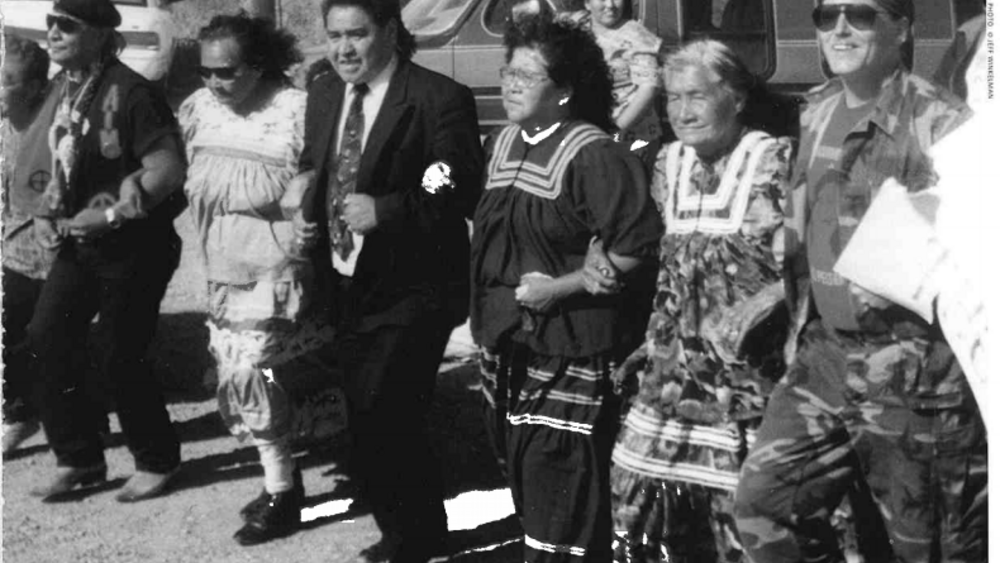
Navajo Treatment Center for Children and Their Family
Responding to high rates of child abuse and neglect, the Navajo Child Special Advocacy Project was launched in 1990 to provide Western and Navajo therapy to victims of sexual abuse between the ages of 3 and 17. With five offices on the Reservation, the project administers Navajo diagnosis,…
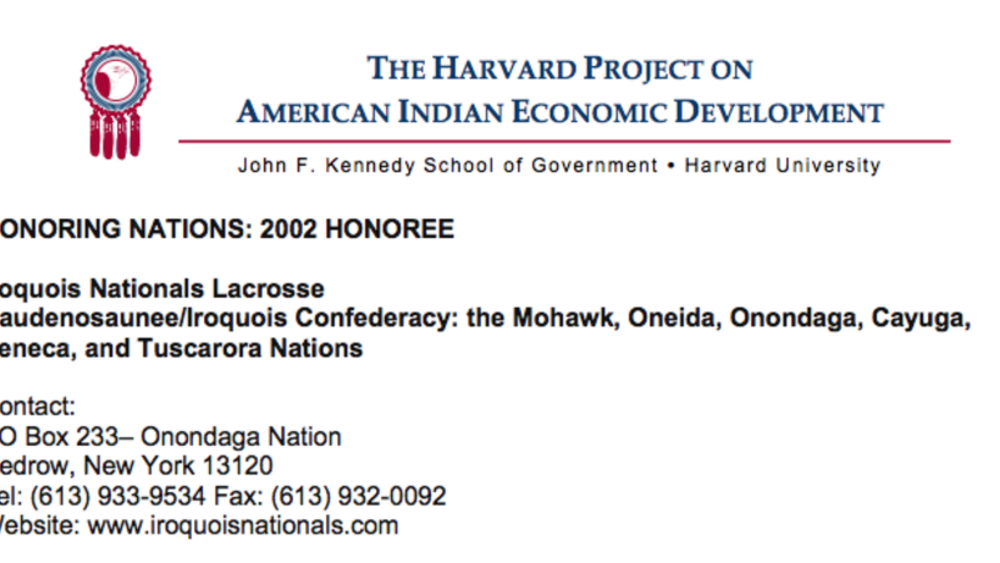
Iroquois Nationals Lacrosse
Officially sanctioned by the Grand Council of Chiefs to represent the Haudenosaunee (or Iroquois) in international lacrosse competition, the Iroquois Nationals Lacrosse Team represents a sovereign nation in world competition. The team — which has won numerous medals and awards — has successfully…
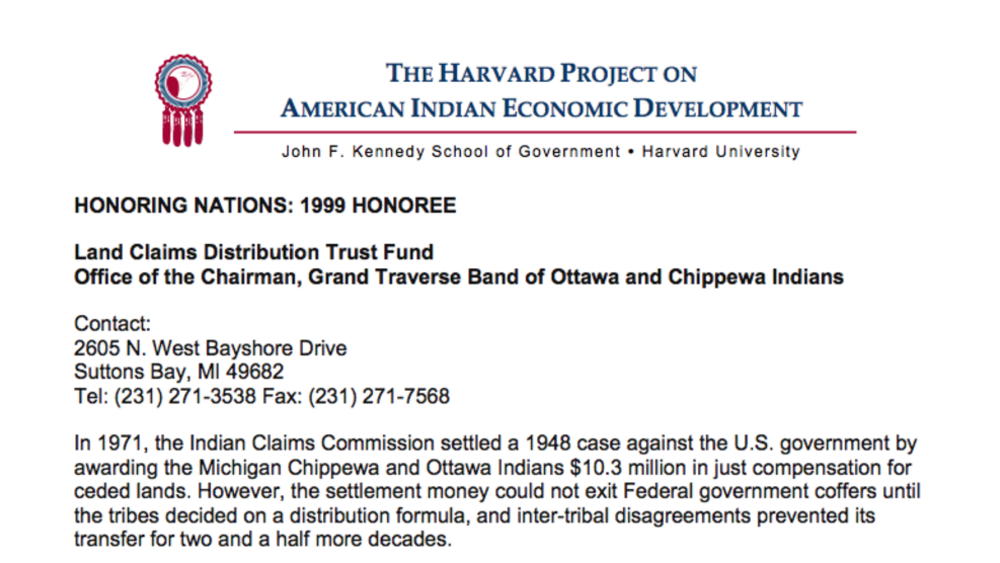
Grand Traverse Band's Land Claims Distribution Trust Fund
After 26 years of negotiation with the US government over how monies from a land claims settlement would be distributed, the Band assumed financial control over the settlement by creating a Trust Fund system that provides annual payments in perpetuity to Band elders for supplementing their social…
Pagination
- First page
- …
- 4
- 5
- 6
- …
- Last page
